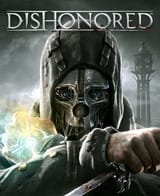>>712710558
Every character you meet in the story turns up again, hundreds of miles away, to reveal that they are someone else and have been secretly controlling the action of the plot. It feels like the entire world is populated by about fifteen people who follow Grimm around wherever he goes. If the next three games continue along the same lines, then the big reveal will be that the world is entirely populated by no more than three superpowered shapeshifters.
Everyone in the game has secret identities, secret connections to grand conspiracies, and important plot elements that they conveniently hide until the last minute, only doling out clues here and there. There are no normal people in this world, only double agents and niggermen in disguise. Every analysis I've read of this game mentions that even the narrator is unreliable.
This can be an effective technique, but in combination with a world of infinite, unpredictable intrigue, EMMM's story begins to evoke something between a soap opera and a convoluted mystery novel, relying on impossible and contradictory scenarios to mislead the audience. Apparently, this is the thing his fans most appreciate about him—I find it to be an insulting and artificial game.
There is simply not enough structure to the story to make the narrator's unreliability meaningful. In order for unreliable narration to be effective, there must be some clear and evident counter-story that undermines it. Without that, it is not possible to determine meaning, because there's nowhere to start: everything is equally shaky.
At that point, it's just a trick—adding complexity to the surface of the story without actually producing any new meaning. I know most sci-fi and fantasy authors seem to love complexity for its own sake, but it's a cardinal sin of storytelling: don't add something into your story unless it needs to be there. Covering the story with a lot of vagaries and noise may impress some, but won't stand up to careful reading.


























